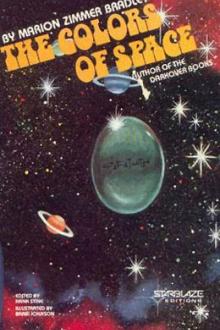The Last Secret You'll Ever Keep, Laurie Stolarz [english love story books .txt] 📗

- Author: Laurie Stolarz
Book online «The Last Secret You'll Ever Keep, Laurie Stolarz [english love story books .txt] 📗». Author Laurie Stolarz
Sometimes I remember random details from the night they died, like the pink pajama bottoms I wore. And the root beer floats Mom and I had made earlier that evening. Plus, the word problems Dad had helped me with, including the one about train stops and gallons of fuel that neither of us could figure out.
I remember sounds too: the loud, hard crack that finally woke me up; the shattering of glass; and the pleading wails. So much screaming. But I’d been deep in sleep; my brain had registered the wails as part of a dream.
A burning-rubber scent filled the room. Clouds of smoke filtered through the space at the bottom of the door. I jumped out of bed and flicked the light switch.
But nothing happened.
The switch wasn’t working.
And meanwhile, the wailing continued. It took me a beat to realize it was my mother’s voice: my mother’s screams.
I heard my father shout, Terra, can you open your bedroom door?
Where was he?
At the end of the hall?
I tried my bedroom doorknob as he continued to yell. The metal seared my skin, radiated to my heart. Smoke filtered through the shiny grain, turning the panel black. I stepped back, just as another cracking sounded.
The house was coming apart.
My head was caving in.
“Dad?” I called.
He didn’t answer.
I grabbed a sweatshirt and used it as a makeshift glove to try the knob again. But it was still too hot. And the air was way too thick. I brought the sweatshirt to my face to keep from hacking up. But I couldn’t stop wheezing. The burning-tire smell seeped into my lungs, caused my eyes to sting.
I bolted for the window, threw the pane and screen open, and climbed on top of my desk to access the sill. Sirens blared from streets away. As crazy as it sounds, it hadn’t even dawned on me to call 9-1-1.
But maybe my parents had.
I could no longer hear their voices. Maybe Dad had gone back downstairs. Probably, they’d already gotten out. Their bedroom was on the first floor, behind the kitchen pantry, not far from the patio doors.
Beneath my window was the driveway pavement. Neighbors had come outside, into the middle of the street. Mr. Jensen, who used to sit on his front lawn whittling stakes for his garden, came running in my direction with a tall metal ladder. Neighbors say he helped coach me down.
That Mr. Chung got out his garden hose.
That Mrs. Wheeler knelt down in the middle of the street to pray with her rosaries.
My memory has holes, so there’s a lot I don’t remember. But one major thing I do: the bright ball of fire coming out the side of the house like something you’d see in movies, and the black clouds of smoke as they drifted up toward the sky—too big to be real, too much to take in.
“What’s happening?” I shouted to whomever would hear me.
Where were my parents?
Why couldn’t I find them?
Fire trucks showed up. Bright flashing lights turned the pavement red and blue. Someone draped a jacket over my shoulders.
Someone else whispered into my ear, “The firefighters will do the best they can.”
What did that mean? What was “the best”?
I ran toward the front entrance, where the firefighters had gone in, heat pressing against my face, smoke wafting up my nostrils. But people held me back—hands and fingers and shoulders and grips—despite my kicking and screaming and pushing and pleading.
I woke up sometime later in a strange room, on a strange couch, unsure how I’d gotten there.
“Terra, are you awake?” Mrs. Wilder’s voice. She stood in the doorway with clumps of tissues balled up in her hands.
I was in my neighbor’s house, in my neighbor’s living room. I recognized it now: the picture window that faced my driveway with the stained-glass sun that hung in the center.
“You blacked out, honey,” she said.
Blacked out? Was that even a thing? Why were her eyes so red?
I got up and peeked through one of the sun’s rays, at first thinking the tempered glass must create a distorted effect, because the image across the street—my childhood home—was no longer the way it should’ve been.
“Where are my parents?” My whole body shook. I looked back at Mrs. Wilder, waiting for her to tell me that my parents were in another room or being checked out at the hospital.
“Sit down,” she said instead, her hand clasped over her mouth. Tears dripped down her face. She pressed her dead husband’s slipper against her chest (a security blanket of sorts, she’d told my mother once).
“Where are they?” I repeated, covering my ears, bracing myself for the words.
Mrs. Wilder shook her head, unable to explain it. And I couldn’t understand it—why my parents were gone, why there was nothing else left except rubble and dust: a heap of lifeless ashes, including inside my heart.
NOW
4
I follow Dave-the-tour-guide over a footbridge and to a tree-lined clearing. I chose Dave specifically, because people say he’s an expert on Hayberry Park, that he knows these woods like the back of his hand: every tree, shrub, rock, and burr.
A woman on a review site wrote that Dave was so “well acquainted with these woods, he’d know it if a single log had been kicked from its beaver dam from one visit to the next.”
I doubt that’s really true, but he definitely sounds like an expert, and that’s exactly what I need.
Dave stands at the front of our group and asks us more of his nature-inspired questions, this time about the age and type of the oldest fruit tree. I don’t really care. I’m not





Comments (0)